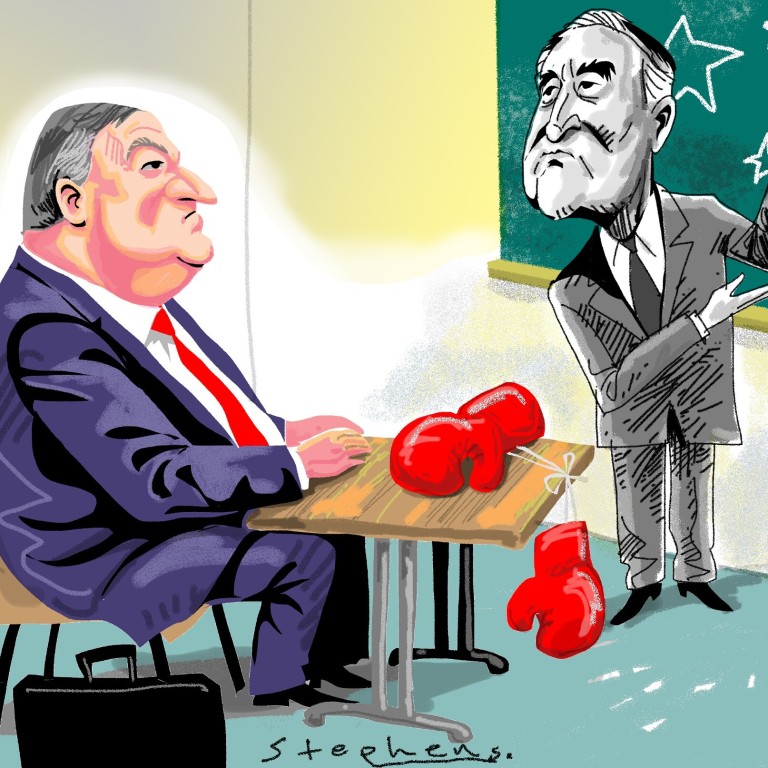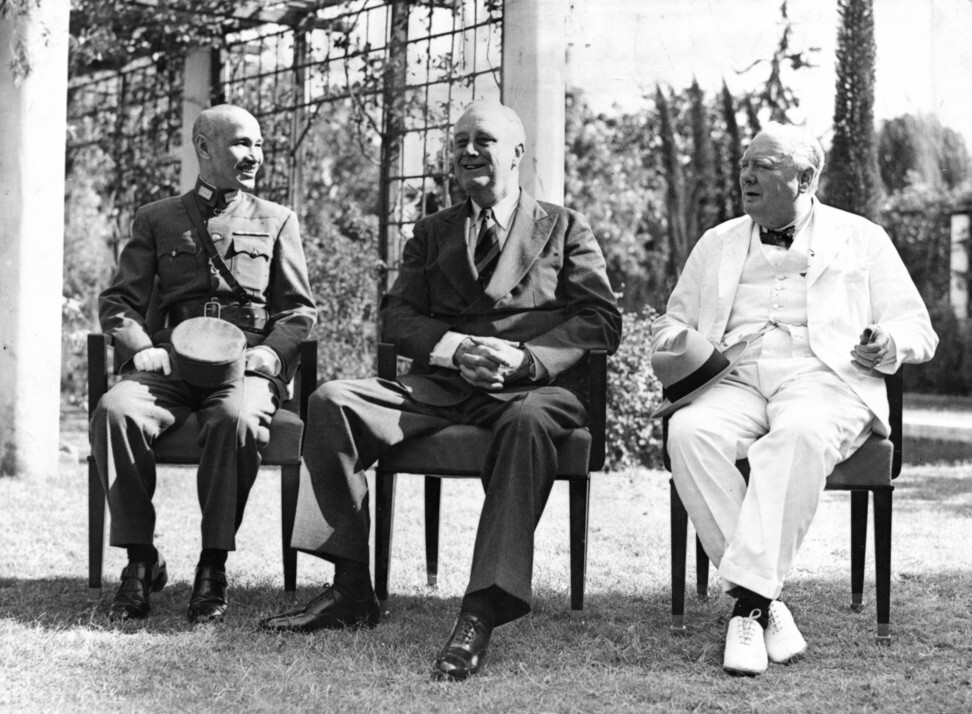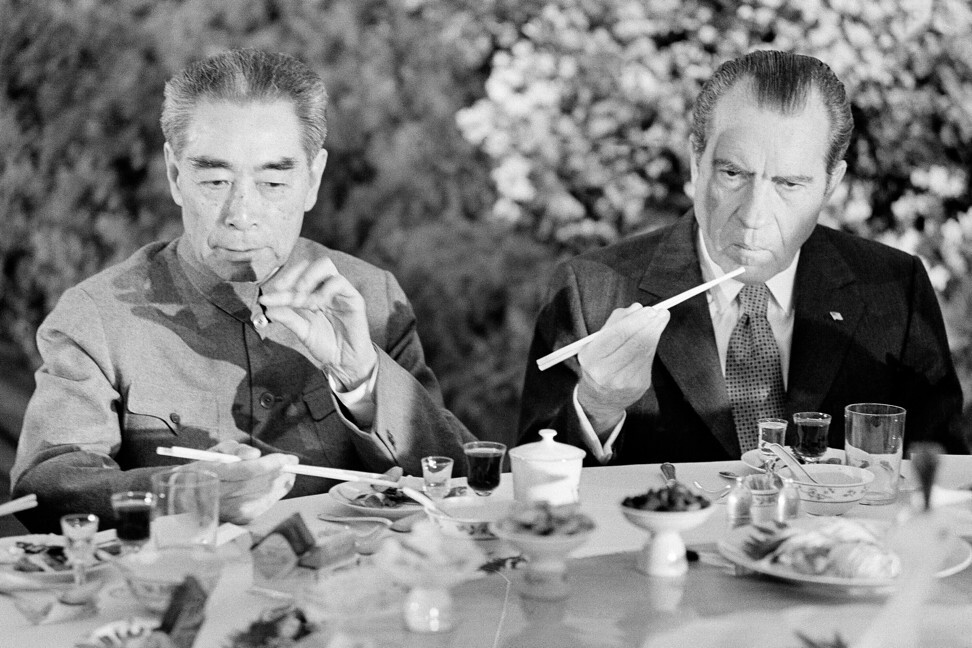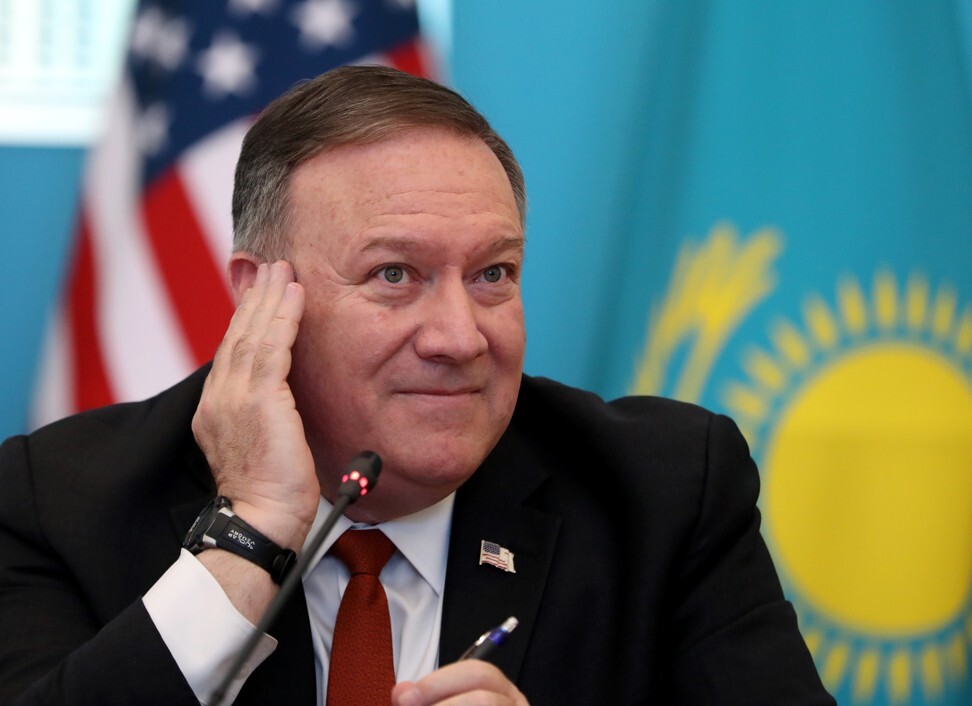
Lest we forget, the US defended Chinese sovereignty through its ‘century of humiliation’
- From the Burlingame treaty to the Cairo conference, the US respected Chinese rights, and bilateral ties have been at their best when diplomacy was conducted by professionals
- The disgraceful trading of barbs between non-diplomats and on social media is a new low. A return to diplomatic standards is in everyone’s interest
In the wake of the coronavirus pandemic, diplomatic relations between the United States and China are at their lowest in decades, as each continues to point fingers and criticise each other’s response.
On the contrary, the most positive, stable US-China relations were when their diplomats were professionals and valued the strength of the bilateral relationship over their own political interests.
With the end of the opium war and the spectre of British hegemony over China looming, president John Tyler dispatched Caleb Cushing to China. The treaty he negotiated with the Qing government established that the US had no territorial ambitions in China and valued Chinese interests.
At the dawn of the 20th century, when other Western powers were carving out their spheres of influence in China, US diplomats again stepped up to advocate for Chinese sovereignty and territorial integrity.
Hay and Rockhill further demonstrated their commitment to the future of Sino-American ties by working with Chinese diplomat Liang Cheng on remitting the US share of the Boxer Indemnity.
The remittance funded Chinese students’ education in the US and also the establishment of Tsinghua University. Both the US and Chinese sides agreed that education was essential to continued positive relations between the countries.
The legacy of this chapter of Sino-American diplomacy has seemingly been lost. The Chinese government lumps the US in with the Western powers who wronged China during its “century of humiliation” – forgetting that the US never sought territory or even a sphere of influence in China.

It neglects the generations of committed US diplomats who continued to advocate for Chinese sovereignty in the face of Western imperialism. Both the US and China were much weaker in the 19th century, and neither was expected to carry the torch of global leadership.
But even as the 20th century wore on and global power dynamics began to shift, leaders in both countries demonstrated the value placed on the relationship by appointing their most capable to key diplomatic roles.
Diplomatic barriers must be removed to ease US-China tension
The peak of US-China diplomatic cooperation was reached during WWII. The Cairo Conference, held in November 1943, was a clear manifestation of how the US, unlike the other Allied powers, saw China as more than just a wartime ally but as an equally important partner in shaping the post-war global order.

Roosevelt planned for the Republic of China to be one of the “Four Policeman” in his ideal post-war world. This showed tremendous faith in China’s governance and in Chiang – which would soon be tested.
Roosevelt’s successor Harry Truman recognised that even as the war in Pacific ended in 1945, a resumption of hostilities between the Communists and Nationalists in China loomed.
He dispatched none other than general George Marshall, among the most trusted and highly regarded strategists in the country, as a special envoy to broker peace. Marshall’s mediation proved unsuccessful, and the US and China became diplomatically estranged.

It is clear that US-China diplomacy is at its most meaningful and productive when the most qualified and sincere personnel are involved. It is unsurprising then, that the relationship has grown so antagonistic.

Chi Wang, a former head of the Chinese section of the US Library of Congress, is president of the US-China Policy Foundation
Help us understand what you are interested in so that we can improve SCMP and provide a better experience for you. We would like to invite you to take this five-minute survey on how you engage with SCMP and the news.

